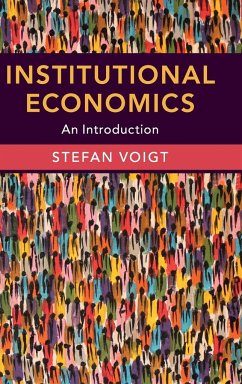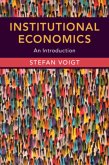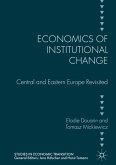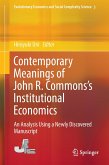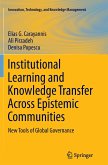Why is it that some countries become rich while others remain poor? Do markets require regulation to function efficiently? If markets offer an efficient way of exchanging goods, why do individuals even create firms? How are economic transactions organized in the absence of a state that could enforce contracts and guarantee property rights? Institutional economics has allowed social scientists to answer many fundamental questions about the organization and functioning of societies. This introduction to institutional economics is concise, yet easy to understand. It not only caters to students of economics but to anybody interested in this topical research area and its specific subfields. Both formal and informal institutions (such as customs, habits, and traditions) are discussed with respect to their causes and consequences, highlighting the important part they play for economic growth and development.
Hinweis: Dieser Artikel kann nur an eine deutsche Lieferadresse ausgeliefert werden.
Hinweis: Dieser Artikel kann nur an eine deutsche Lieferadresse ausgeliefert werden.
'This book covers both contemporary and historical thinking on topics which are at the core of our understanding of how markets and governments work. Although grounded in economics research and thinking, it is written in a way that makes it accessible to a wide range of disciplinary backgrounds.' Timothy Besley, W. Arthur Lewis Professor of Development Economics, London School of Economics

